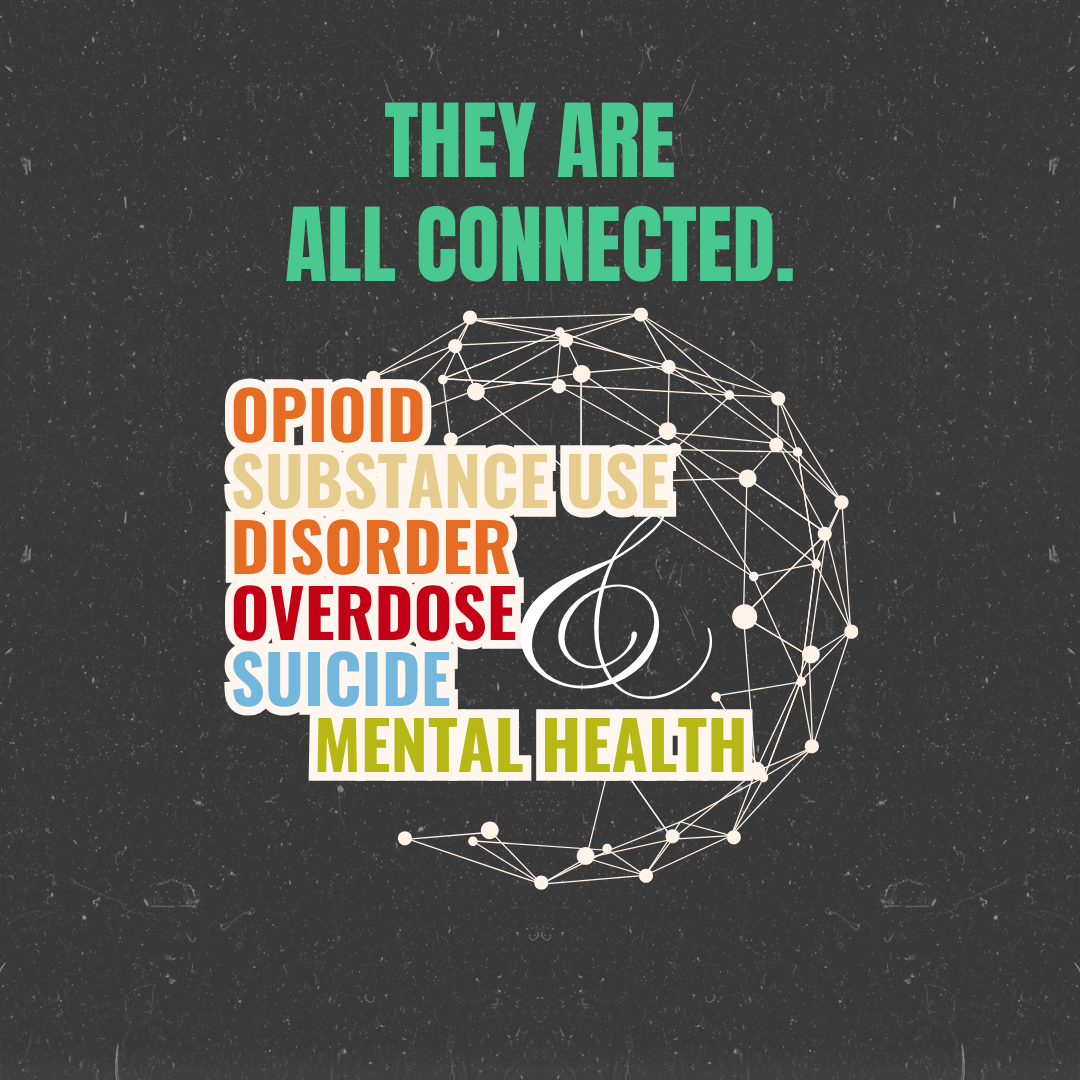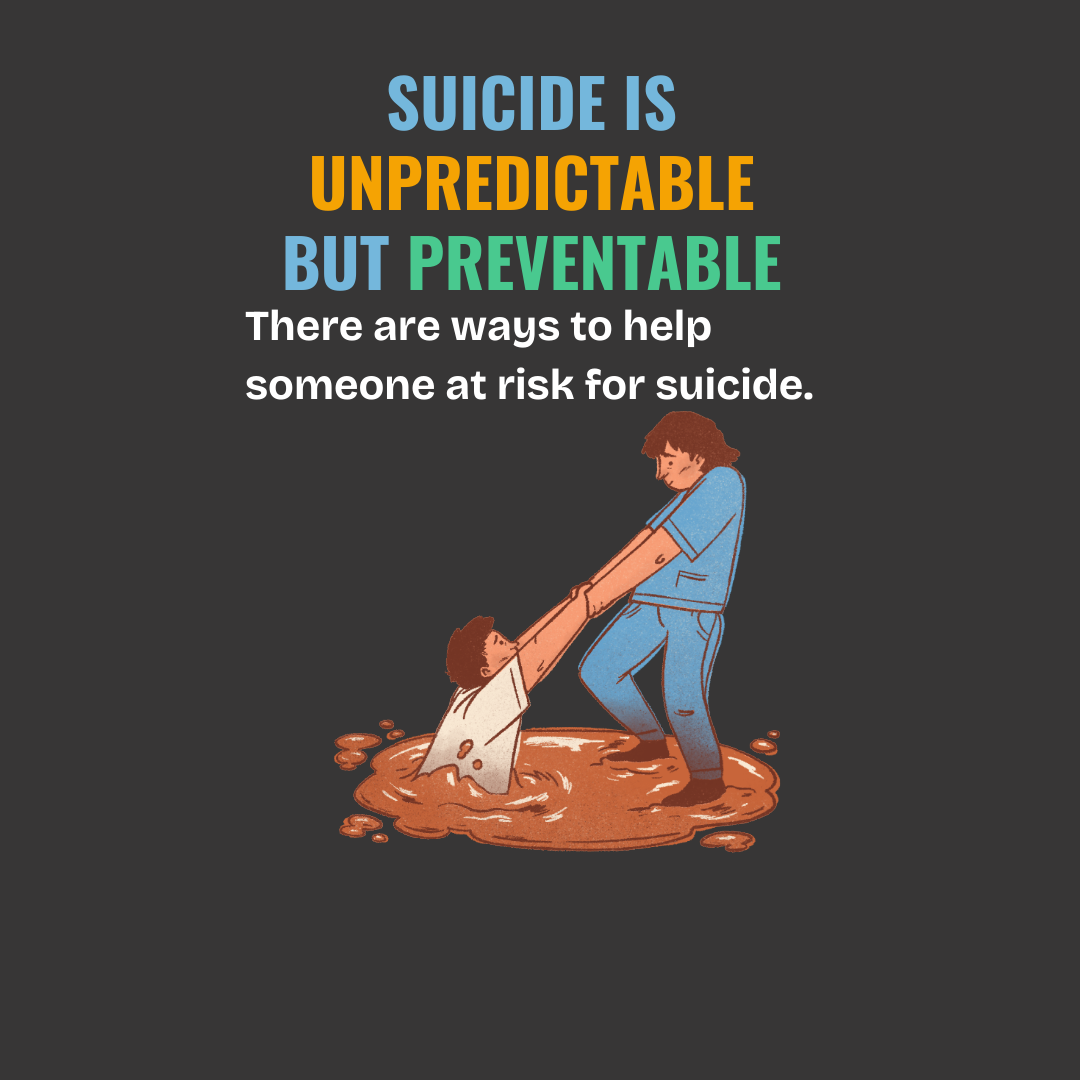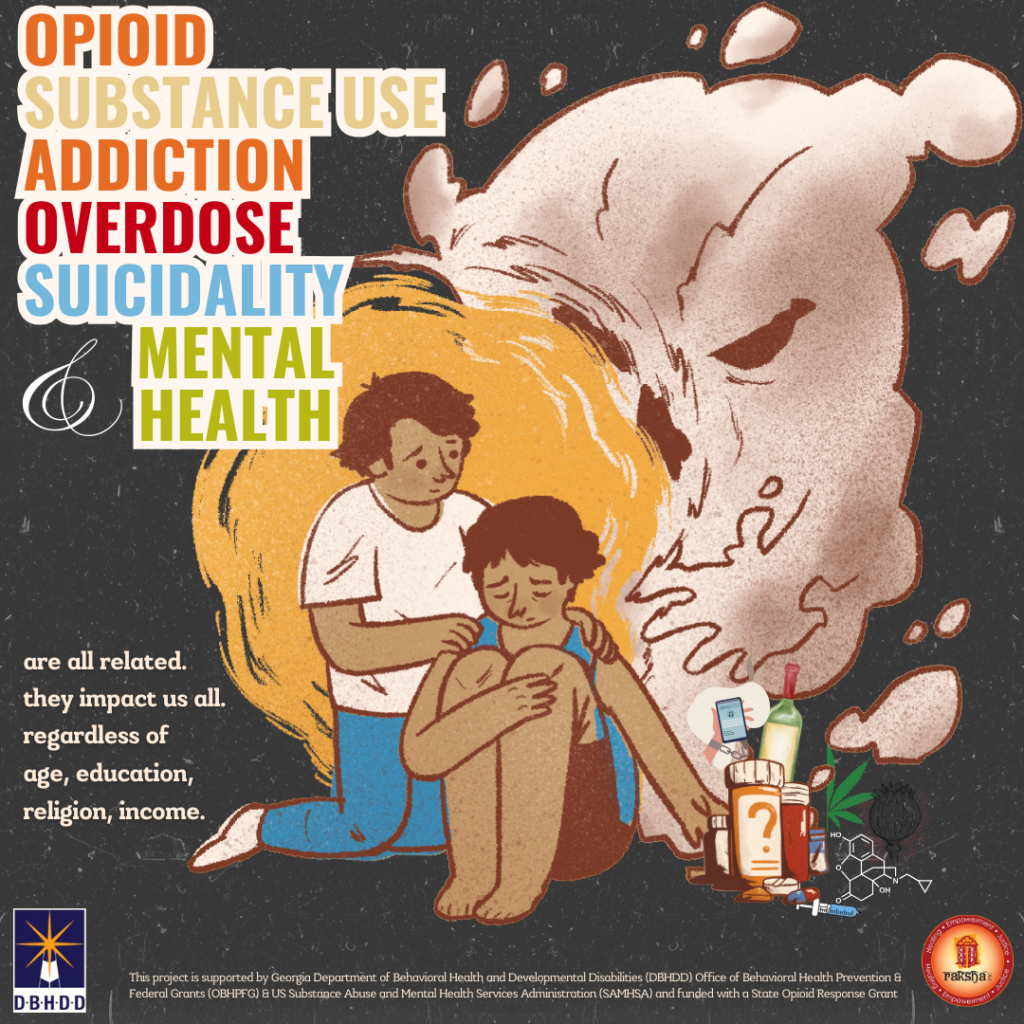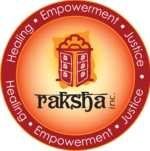
Click to read more about this true story about an individual who battled with addiction. Download the PDF booklet to have practical resources at hand to learn more about and help support those affected by opioid use and addiction. This booklet shows how hope and healing are possible for everyone.




Understanding the connections between suicide, substance use, the opioid crisis, mental health and interpersonal violence is crucial for addressing the broader public health crisis they represent. These issues are not only serious on their own but also influence each other, making it important to address them both individually and together for a more effective response.
Suicide is a growing crisis in the United States, claiming over 48,000 lives annually and ranking as one of the top 10 causes of death. Among young adults aged 18-25, suicide is the second leading cause of death. These alarming statistics are further complicated by rising opioid use and substance use disorders (SUDs). Over the past two decades, opioid use and suicide rates have increased steadily, with South Asians in the U.S., particularly young adults and women, facing additional risks due to acculturative stress and cultural stigma.
To learn how suicide presents itself in South Asian communities, read our most recent blog post here.
The intersection of mental health challenges, SUDs, and access to firearms exacerbates suicide risks. Opioid addiction is particularly concerning, as it is strongly associated with both overdose and suicide. Opioids now account for 70% of all drug overdose deaths, with 20-30% of opioid overdose fatalities potentially linked to suicidal intent. Chronic opioid misuse increases suicidal thoughts, while withdrawal symptoms like depression and anxiety further heighten risk. Additionally, opioid users face higher rates of violence, and opioids are often used to cope with or perpetuate abuse. Opioid use disorder (OUD) is closely tied to suicide, with users facing a 40-60% increase in suicidal thoughts and a 75% higher risk of attempts. Pre-existing mental health conditions, trauma, and stigma intensify this deadly cycle, emphasizing the urgent need to address these interconnected issues.
To learn how suicide presents itself in South Asian communities, read our most recent blog post here.
Sources: Guadamuz, T.E., et al. (2023). “Intersections of Interpersonal Violence and Opioid Use: Implications for Harm Reduction.” Harm Reduction Journal, 20(1). National Institute on Drug Abuse. (2021). “Substance Use and Sexual Violence: A Complicated Connection. Centers for Disease Control and Prevention. (2021). “Violence and Substance Use.” Child Welfare Information Gateway, U.S. Department of Health and Human Services: www.childwelfare.gov/resources/parental-substance-use-child-abuse-georgia/. American Addiction Centers. https://americanaddictioncenters.org/blog/the-link-between-child-abuse-and-substance-abuse. Srinivasa, S. R., Pasupuleti, S., & Dornamraju, R. (2022). Suicide among South Asian Americans: A Systematic Review of Causal and Risk Factors. University of Texas Rio Grande Valley. Journal of Mental Health and Social Behavior, 4(1), 158. Available at: https://scholarworks.utrgv.edu/sw_fac/23 (ScholarWorks) Substance Abuse and Mental Health Services Administration (SAMHSA). (n.d.). Suicide Among Asian Americans. Available at: https://www.samhsa.gov (SAMHSA). Bohnert, A. S. B., & Ilgen, M. A. (2019). “Understanding links among opioid use, overdose, and suicide.” New England Journal of Medicine, 380(1), 71-79. DOI: 10.1056/NEJMra1802148. https://www.addictioncenter.com/addiction/addiction-and-suicide/. Jha, A., Ahuja, M., & Wani, R. J. (2022). Suicide Among South Asians in the United States: A Growing Public Health Problem. Sage Open, 12(4). https://doi.org/10.1177/21582440221140378. https://sapha.org/resources/mental-health-facts/. https://www.advancingjustice-atlanta.org/ga-mentalhealth.
Disclaimer: The information presented here has been compiled by Raksha, Inc for awareness and reference purposes and does not constitute legal or medical advice. Raksha, Inc is not responsible for content of a linked site or any link in a linked site. Raksha, Inc is not liable for use or damages arising in the use of resources, website URLs, hotline numbers in the list or any material contained in it, or from any action or decision taken as a result of using the resources.
